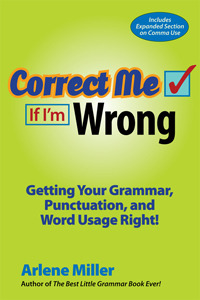National Grammar Day Is March 4! A Toast to Words!

According to Webster, grammar is
1. that part of the study of language that deals with the forms and structure of words (morphology), with their customary arrangement in phrases and sentences (syntax), and now often with language sounds (phonology) and word meanings (semantics)
2. the system of a given language at a given time
3. a body of rules imposed on a given language for speaking and writing it
Who started grammar, anyway?
The analytical study of language began in both Greece and India in the second half of the first millennium BC. While in Greece it began as the study of written language, in India it included the transmission of recited Sanskrit as well as written language.
The present-day study of grammar comes from Greek tradition, where is was linked with both logic and rhetoric. Plato and Aristotle can be blamed for helping form the foundation for the discussion of the parts of speech, as they were very interested in language.
However, grammar as a formal system was first developed by Greek scholars in Alexandria (Egypt).
Thank you to http://www.encyclopedia.com/topic/gra... for the information in this section!
So where did English come from? Any why bother with grammar?
English is a hodgepodge of other languages. Beginning as a Germanic language used by Anglo-Saxon immigrants, English also contains influences from Latin, French and Celtic.
The purpose of grammar rules is to make language understandable. English is thought to be one of the most difficult languages to master, containing over a million words and, as we know, lots of irregularities. Without grammatical rules to define sentence structure, word usage, punctuation (we can call punctuation a part of grammar), and the like, there might be literary chaos!
Thank you http://www.ehow.com/about_6592206_eng... for some of the information in this section.
And now for the fun part: Some fun fact about words. Did you know
A sentence that contains all 26 letters of the alphabet is called a pangram.
The word uncopyrightable is the longest word in the English language (in common use) that contains no letter more than once.
The word checkmate in chess comes from the Persian phrase “Shah Mat,” meaning “the king is helpless.”
Typewriter is the longest word that can be made using the letter on only one row of the keyboard.
The names of all the continents end with the same letter they start with (and they appear to be all vowels as well, mostly a‘s).
Stewardesses is the longest word that is typed with only the left hand.
The word set has more definitions than any other word in the English language.
Facetious, abstemious, and arsenious contain all the vowels in the correct order.
Skepticisms is the longest word that alternates hands when being typed.
The is the most frequently used word in the English language (not too surprising).
Deeded is the only word that is made using only two letters three times each.
Queueing is the only word containing five consecutive vowels.
Lollipop is the longest word that can be typed using only one hand (the right).
You speak about 4800 words a day.
Pinocchio is Italian for pine head.
The Cambodian alphabet is the world’s largest, with 74 letters.
The longest one-syllable word in the English language is screeched.
The word lethologica is the “state of not being able to remember the word you want.”
The longest place name still in use is a New Zealand hill named: Taumatawhakatangihangakoauauotamateaturipukakapikimaungahoronukupokaiwe-nuakit natuhu
And if #19 scared you, the word meaning the fear of long words is: hippopotomonstrosesquippedaliophobia
Stay tuned to this blog for more word fun facts in the months to come!
Goodreads Book Giveaway

Correct Me If I’m Wrong
by Arlene Miller
Giveaway ends March 04, 2014.
See the giveaway details at Goodreads.



